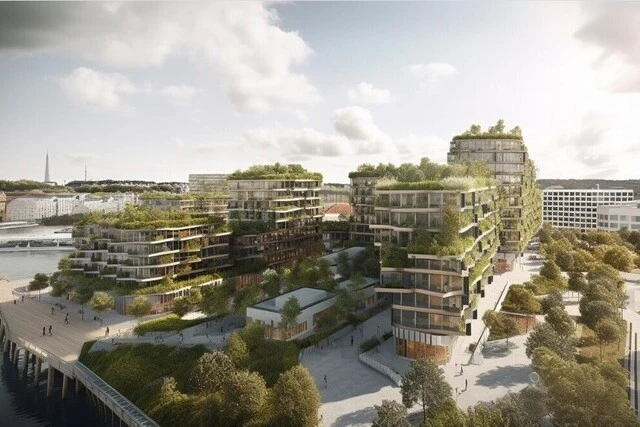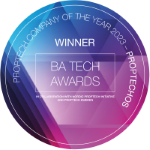As our world continues to grapple with the devastating impacts of climate change, a new generation of property owners and investors now run the commercial real estate industry. This new generation seeks to embrace a more sustainable future clearly shown by the widespread adoption of the green movement.
What is the green movement?
At its core, the green movement refers to a multifaceted effort that promotes sustainability, reduces waste, and protects the environment. It aims to create a healthier and more equitable world, where humans and nature can coexist harmoniously. To achieve this, the green movement centers around every stakeholder in society taking sustainability into account for every decision and action.
Philosophical
Philosophically, the green movement is rooted in the belief that the Earth is a finite resource that must be protected and preserved for future generations. It recognizes that our actions cause real-world consequences and that we must take proactive steps to reduce our impact on the environment.
Social
Socially, the green movement is a call to action that transcends traditional boundaries of politics, race, and class. It unites people from all walks of life with a common goal: creating a sustainable future. The green movement demands action and accountability from all of us.
Political
Politically, the green movement aims to reshape the way we think about public policy and environmental regulations. It promotes new policies and leaders who prioritize sustainability while recognizing the unsustainability of our current trajectory. From carbon taxes to clean energy incentives, the green movement currently drives a new era of policy and regulation.
Properties that will bring change in the future
Green buildings and net-zero buildings are driving change in the real estate industry. These properties prioritize sustainability by incorporating energy-efficient lighting, renewable energy sources, and water-saving technologies. They can also use digital twin technology to optimize resource usage through advanced analytics. Smart and connected buildings use IoT devices and other advanced technologies with advanced data analytics to optimize building performance and improve energy efficiency.
Environmental sustainability principles for the real estate industry
Causing roughly 40% of global carbon emissions, the real estate industry can make a significant impact on environmental sustainability by embracing environmental sustainability principles. Prioritizing sustainability in design and operation can reduce carbon emissions while creating healthier and more efficient buildings.
ESG in real estate
ESG, or Environmental, Social, and Governance, in real estate represents an important shift toward more responsible and sustainable building practices. It sets standards for sustainability through ESG green buildings to guide building practices and reward buildings that reduce their environmental impact and promote sustainability. ESG factors can include energy efficiency, water conservation, waste management, and indoor air quality, among others.
The green movement’s impact
The green movement is promoting sustainable building practices in the real estate industry. This includes improving energy efficiency and water conservation in building design, construction, and operation. Additionally, the green movement can benefit the real estate industry economically by attracting socially responsible investors and tenants.
Corporates prioritize sustainability
Sustainability is a top priority for corporate players in real estate. To attract socially responsible investors and tenants, companies can incorporate ESG strategies to prioritize sustainability. This not only meets investor expectations but also drives higher occupancy and value for properties.
Green strategies can drive higher occupancy and value
Incorporating environmentally-conscious strategies in real estate can lead to higher occupancy rates and increased property value. According to a study in 2020, certified green buildings maintain higher occupancy rates by 17% and rental premiums by 23% compared to non-certified buildings. This study also showed the sale prices of green buildings increased by 43%.
Optimal building performance
A major aspect of the green movement in the real estate industry revolves around improving building performance to meet sustainability goals. To achieve optimal building performance, technology like smart building systems can help reduce energy consumption, improve efficiency, and lower costs. Sustainable design and construction practices can also help buildings operate more sustainably and attract tenants who value eco-friendly operations.
Smart and connected buildings
Smart buildings are becoming more common in commercial real estate as technology advances. These buildings use data and automation to improve efficiency and reduce waste while improving comfort and productivity for occupants. For example, a smart building might use sensors that monitor occupancy, lighting, temperature, and other factors in real time. Building managers can then use this data to minimize energy waste in unoccupied rooms.
Retrofitting buildings
Traditional buildings can still implement smart technology and connected systems to improve sustainability through a process known as retrofitting. The Empire State Building in New York City serves as a perfect example. Through a comprehensive renovation, the building improved its energy efficiency by over 38%, saving $4.4 million in annual energy costs. The retrofit included upgrading lighting systems, improving insulation, and installing advanced building automation and control systems.

Per Karlberg
Per Karlberg, a distinguished technology executive, demonstrates deep expertise in the nexus of real estate, technology, and ESG. Holding advanced degrees from Lund University, and with key roles as CEO of our company and Co-Founder of ProptechOS, he has shaped the proptech field through significant contributions to real estate technology advancements. His instrumental work in co-authoring “The realestatecore ontology” has facilitated digital transformation and ESG breakthroughs in the real estate sector.
Read his full bio and information here.

